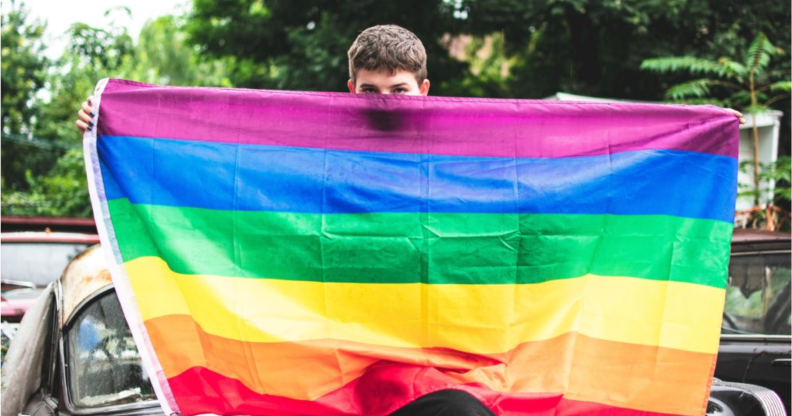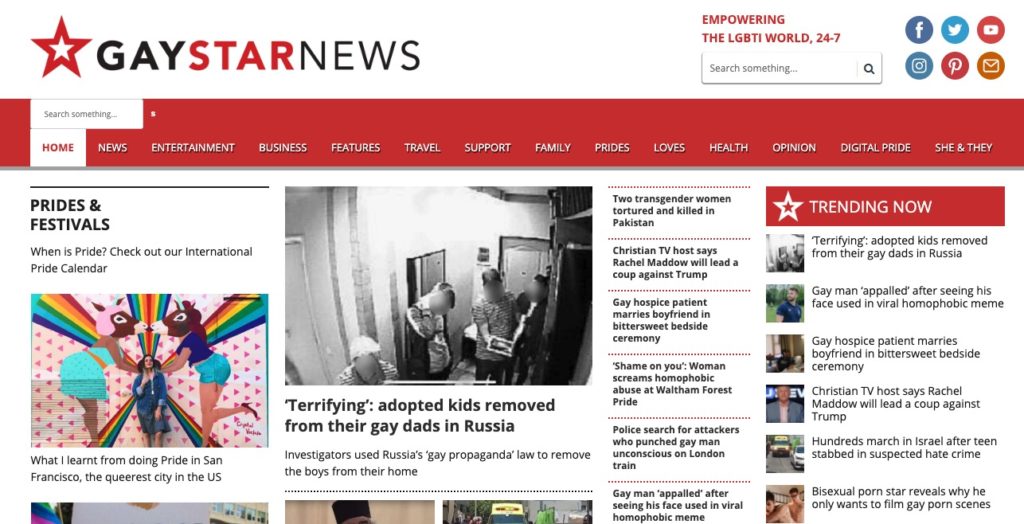‘Lesbians’, ‘bisexuals’ and ‘same-sex marriages’ are being blacklisted as unsafe for advertisers

Keywords such as “drag queen” are banned for advertisers. (Pexels)
Around three-quarters of articles on LGBT+ topics are flagged as “inappropriate” for advertisers by brand safety toolkits, a damning study has revealed.
To the filtration systems, words such as “lesbian”, “bisexual” and “same-sex marriage” are considered brand-busting landmines to advertisers.
Other blacklisted terms include “death” and “injury”, according to the ad-verification firm Cheq’s study.
What does this mean?
Many brands will employ ‘safety tools’ to control how their brand is marketed online, such as where their ads appear.
Blacklisting is one method which excludes ads popping up on specific sites based on the content they share.
An example could be brands blacklisting the word “gory” to ensure their ads don’t appear alongside a violent video.
But as a result, LGBT-focused websites are caught in the crossfire, having their content marked as unsafe to advertisers.
In other words, to the typical toolkits, an article about lesbian sexual health or RuPaul’s Drag Race might be flagged as pornographic for advertisers.
Or an article on “cult lesbian thriller, Killing Eve” would be blocked simply for containing “cult”, “lesbian” and “killing.”
This means that queer publishers are denied ad revenue.
Saying “lesbian” is a death sentence to advertisers.
Out of the 225 articles inspected over the course of the study, 164 of them – on legitimate LGBT+ news stories across the web – were being flagged by media buyers’ blacklists.
“We don’t produce particularly contentious topics, and we take the same impartial editorial approach as the BBC,” said Benjamin Cohen, CEO of PinkNews Media Group.
“But the truth is, no matter what, the very nature of gay culture is going to be contentious to some people.”
Cheq combed an industry-standard blacklist of 2,000 words commonly used to prevent brands from appearing next to what it considers unsuitable content.
Researchers found that the list prevents brands from appearing next to stories mentioning some common terms in the queer community, such as “drag queen”.
“From an ad agency perspective, an article on lesbian sexual health is an article about porn,” Cohen explained.
“But stories about lesbian actresses or politicians, we’re finding those blocked from a lot of ad agencies as well.”
An example Cohen cited was former Stonewall chief executive, Ruth Hunt, being hired to the House of Lords, the upper house of the UK parliament.
But as the story mentioned the keyword “lesbian” six times, brand-safety lists would bluntly block it.
Cheq founder and CEO Guy Tytunovich said: “The use of blunt keyword blocking, and media blacklists is outdated and discredited. At best, this practice kills reach for campaigns and hurts the revenues of all online publishers.
“But at worst it is making minority news and opinion, particularly for the LGBT+ community, almost impossible to monetise.”
What is the future of LGBT+ media?
The LGBT+ press was born out of activism. Often in times of crisis when queer voices were not only vital, but regularly silenced.

LGBT publisher Gay Star News has closed citing financial difficulties. (Screenshot/GSN)
Major mainstream outlets such as BBC, Buzzfeed News and HuffPost launched dedicated LGBT+ verticals and hired staff specifically to report on LGBT+ issues in the last few years.
While Grindr’s Into and Condé Nast’s Them in 2017 flourished.
Fast-forward to 2019, and Grindr shuttered the doors of its queer publication, and Them has suffered from the high-turnaround of its founding leaders, some of whom cited rows over revenue sources as a core issue for their departure.
While The Pool went offline in March, 2019 kicked off with a landslide of lay offs in Buzzfeed. Critics quickly pointed out that many laid off were LGBT+ employees.
Moreover, the LGBT+ media company Gay Star News was bought off for £1 after shuttering with £33,000 in debt in July.
The struggle for niche online outlet to financially stay afloat amid mass layoffs and closures has hurtled LGBT+ media into a state of flux. But many queer publications are adapting and surviving,
Recently, PinkNews announced that monthly revenues were up 300% year-on-year.

